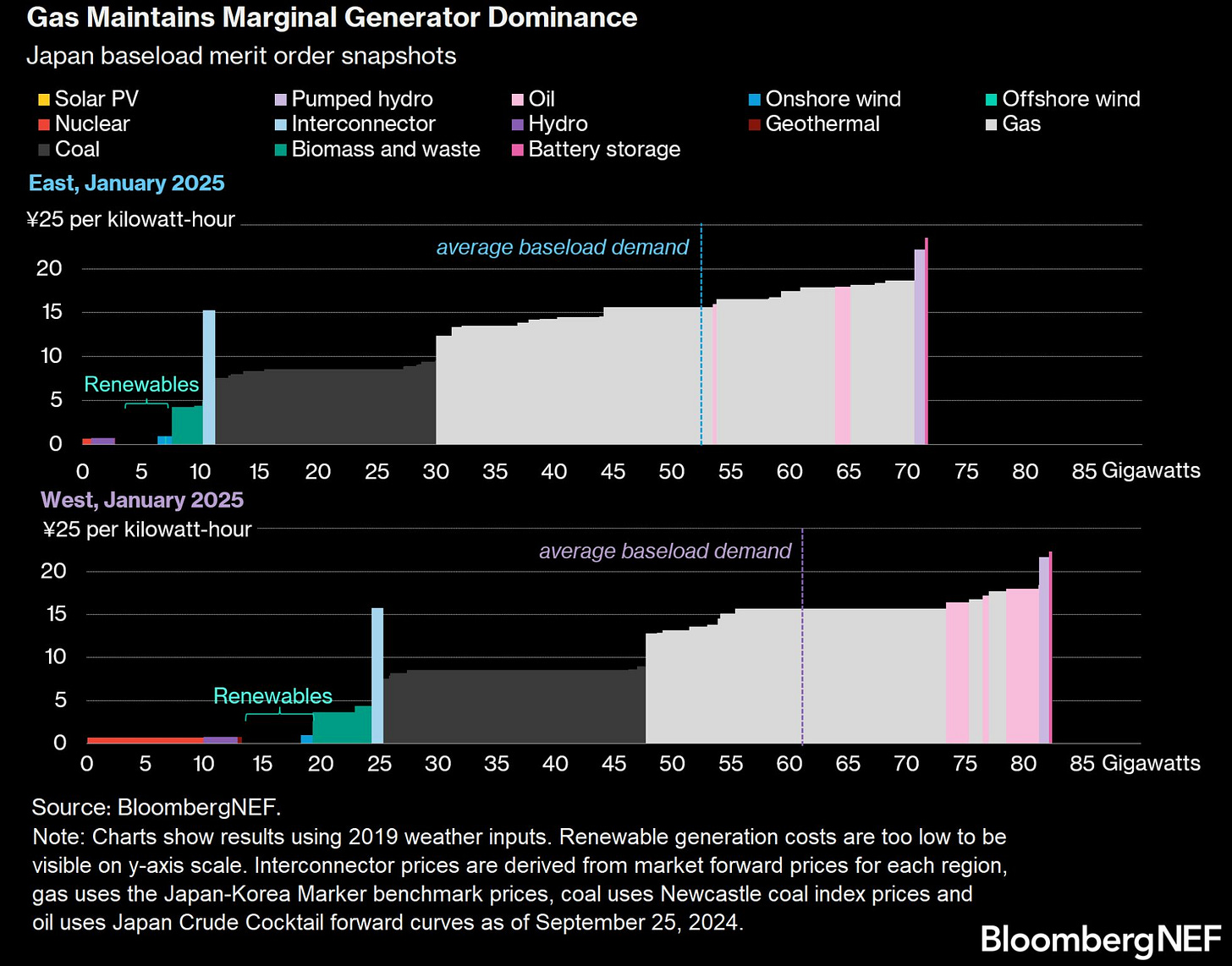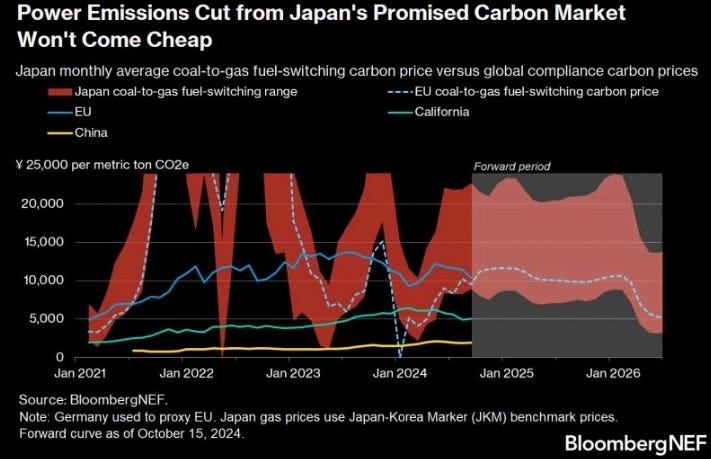Welcome to Carbon Risk — helping investors navigate 'The Currency of Decarbonisation'! 🏭
If you haven’t already subscribed please click on the link below, or try a 7-day free trial giving you full access. By subscribing you’ll join more than 4,000 people who already read Carbon Risk. Check out what other subscribers are saying.
You can also follow on LinkedIn and Bluesky. The Carbon Risk referral program means you get rewarded for sharing the articles. Once you’ve read this article be sure to check out the table of contents [Start here].
Thanks for reading Carbon Risk and sharing my work! 🔥
Estimated reading time ~ 9 mins

A recent survey of citizens in Southeast Asia revealed some surprising responses as to the role played by countries in global climate policy. The ISEAS - Yusof Ishak Institute asked people which country demonstrated the most leadership in helping the world meet the Paris Agreement.1
Perhaps surprisingly, the country that ranked first was Japan (22.4%). The United States was in second place (20.4%), followed by the EU (20.3%), with China lagging much further behind (11.2%). The results are a remarkable turnaround from 2021 when the EU was seen as the clear leader.
More detailed questions show that Japan holds an even larger lead when it comes to perception of the most trusted country in global climate innovation (holding a 10pp lead over the US), and knowledge sharing (5pp lead, also over the US). In a recent post,
explains that one reason why Japan is held in such high esteem is it’s recognition of alternate pathways to achieving net zero:2“Melinda Martinus, one of the report's authors, explained that while "Japan is arguably less ambitious in advancing progressive climate strategies" than the US or EU, it is more accommodating toward the different circumstances that Southeast Asian countries face. This suggests that Japan is succeeding in promulgating the principle of "common goal, diverse pathways" -- the common goal of carbon neutrality and the diverse paths in getting there -- in the Asia-Pacific region.”
The article also argues that US and EU climate and environmental policies tend to disadvantage Southeast Asian industries relative to Western business interests:
“Policies like some provisions of the US Inflation Reduction Act and the EU's Carbon Border Adjustment Mechanism (CBAM) and ban on palm oil have been criticized as protectionist and undermining multilateralism by incentivizing domestic industries. This contrasts sharply with the approach that Japan has taken, which is to aggressively export and finance Japanese technologies -- yes, including ones heavily criticized by climate groups -- and to develop local human resources and share technical know-how on how to build, operate and maintain those technologies.”
Nonetheless, the perception that Japan is a climate leader does appear contradictory, at least to an outsiders perspective. As
explains, Japan has been criticised for its investment in the region, and in particular in those technologies such as ammonia co-firing, carbon capture and storage (CCS), blue hydrogen, and LNG carriers, that could prolong the use of fossil fuels.Too high a hurdle
In contrast to many other advanced economies Japan remains heavily reliant on fossil fuels including coal to generate electricity (69% in 2023). Thermal coal’s share of generation increased from 22% in 2000 to a high of 33.2% in 2021, and even though that has dropped back slightly, at 32.2% it continues to be a significant factor in Japan’s overall emissions. Power sector emissions have dropped over the past decade, but that’s mainly been due to an overall decline in electricity generation.
BNEF estimates that Japan would need a carbon price of at least ¥10,000 (€62) per tonne of CO2 to incentivise a shift away from thermal coal and towards natural gas. The high price of gas in Japan, coupled with the relative high efficiency of its coal-fired generation units, means that a high carbon price is required.
Japan was an early carbon pricing pioneer, becoming the first Asian country to introduce a carbon tax back in 2012. The national carbon tax was set at ¥289 (~€2) per tonne CO2. Unfortunately successive governments have been reluctant to hike the carbon tax to a level that makes any meaningful difference to fuel switching.





